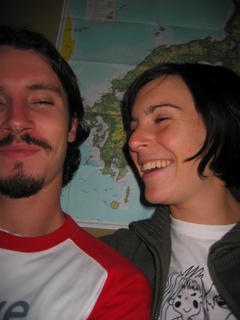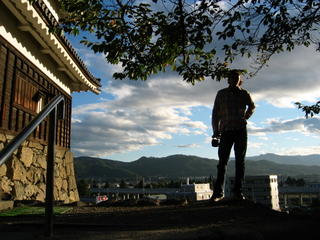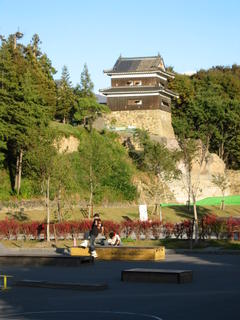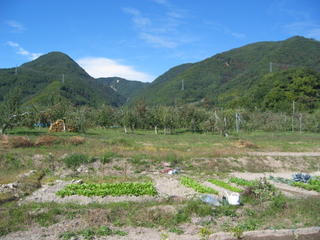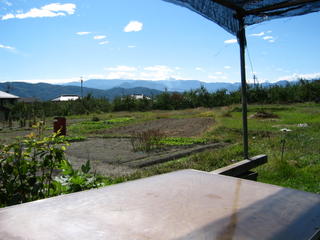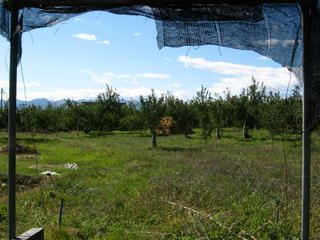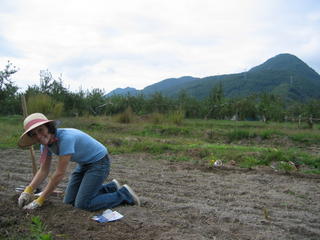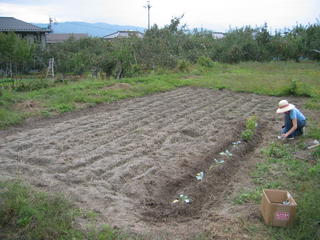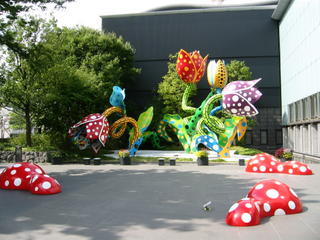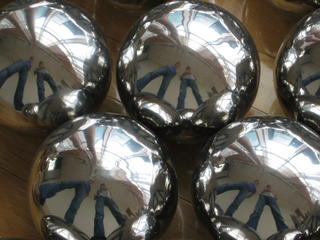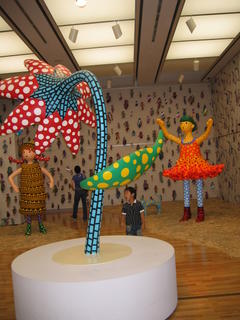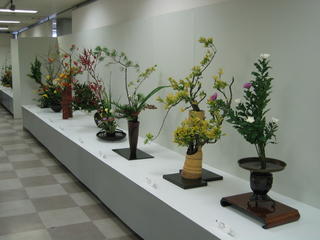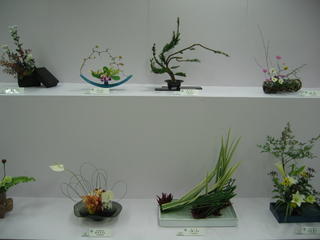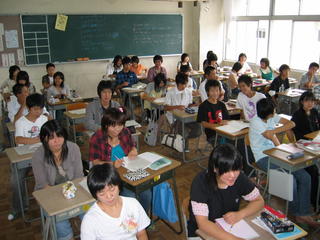
I asked 29 third year (or senior) students in the International Track (this track is comprised of the students who scored highest on their high school entrance exams—the supposed crème de la crème of Someyaoka High School) the following question:
"Realistically, what job will you most likely have in the future?"
These are the results:
12 students wrote "Teacher" (some wanted to teach English, others Japanese)
3 students wrote "Nurse" or "Medical attendant"
2 students wrote "School Counselor"
2 students wrote "Cab driver"
1 student wrote "Newspaperman"
1 student wrote "Small actor with part time job"
1 student wrote "Designer"
1 student wrote "Wife"
1 student wrote "Illustrator"
1 student wrote "Travel agent"
1 student wrote "Assembly member"
1 student wrote "Nutrition expert"
1 student wrote "Museum attendant"
1 student wrote "Office worker"
I was shocked when I read through their responses. Granted, I only surveyed 29 students so far, but I assumed many students in this group-on-a-pedestal would want to become doctors and business executives. After all, if students from this esteemed group, a batch of kids that have been primed for prestige and prepped for power from a very early age, don't realistically picture themselves filling the most prestigious positions in society, who will? I can't begin to imagine how their parents would react if they knew that their children aspired to be small actors with part time jobs, cab drivers, and museum attendants. I personally don't think these jobs are any less important than any other jobs, but I know that a vast amount of parental energy (you know the "help" I'm referring to: a few essay conclusion paragraphs weighty with Mommy's authorial tone, one or two science project creations with perfectly rounded edges only Daddy could have created with adult tools, and a healthy serving of good ol' encouragement and reinforcement for a decade and a half of schooling) has been invested in each and every one of them, and it is because of this investment that, in a society like Japan, one in which a child is considered an extension of the parent like an oblong growth with a heartbeat dangling off the side of a parent's neck, they are expected to pay out dividends to their investors after college graduation.
If students from a traditional household break the routine, if girls fail to marry or take a tea serving position in a company (girl makes tea, serves to boys, makes more tea, refills cups, repeat until 6:00 p.m., go home) and if the boy conditioned for a corporate leadership position decides instead to make the inside of a cab car his office, the family solution starts to steep in disgrace and shame. Thankfully, for the sake of the future generations of Japanese and their ability to pursue their dreams, this rigid social structure is starting change.
I just taught a class on options for Japanese women in 2005 and we looked at an article from Time magazine that described a new, powerful, growing sect of Japanese women who are single, over 30, and wealthy. These women have worked hard in school, just as their parents trained them to, pursued careers with confidence, and are now buying their own condominiums in posh areas of Tokyo, Osaka, Kyoto and other big cities (much to their parent's dismay of course, "Yumi, if you buy a condominium, what husband will ever want to take care of you? It will appear as if you don't need a man to take care of you!" "Exactly mother, exactly,"). There is a difference in values between generations that is disturbing the placidity of Japanese life. High-heeled granddaughters are smashing the glass above them with heavy Louis Vuitton pocketbooks (according to a recent survey by the Saison Research Institute, half of all Japanese women in their 20s have one) while their grandparents are trying to pick up the pieces and patch the ceiling back together with sticky rice and kimono fabric.
Oh yeah, I forgot to mention that teachers are actually respected in Japan. That is also reflected in my tiny survey. Unlike in America, many high school teachers in Japan live for free in government owned apartment buildings, are revered as professionals in their areas of study, and demand the utmost respect from students and their parents and other members of society. High school teachers in Japan are treated just as professors in America are treated. The insulting saying that I've heard used in America, "Those who can't, teach, and those who can, do," does not apply to Japanese teachers because if you teach at any level in Japan, you are "doing."
I assume this reverence for teachers is rooted in the Japanese fascination with intangible things like pride, honor, knowledge, and family bonds. When a society is more concerned with the honor a job provides rather than the salary, an artist does not need to earn the title of artist by creating a certain amount of art, a writer does not need to write three, four, eight, or twenty novels before he/she is considered a good author, because there is not as much emphasis placed on the end product, the final thing, as there is in America. In the states, you're not rich unless you have a certain amount of money sitting in the bank (and even then, 'new' or 'old' money will further define your level of 'richness'), you're not a historian unless you've done you're research and lured something fresh out of the depths of the past or written a book or created a theory, you're not a scientist unless you're in the lab past your bedtime with a growling stomach and heavy eyelids. In Japan, if you know about science, you can teach it, and teaching it makes you a scientist because that is your specialty, that knowledge helps define your position in the pack. If you can teach a subject, you adopt it as your own and invite it to Sunday dinner; you let it add words to your vocabulary and help decide what makes you excited about life. In America, teachers also experience this process of adoption, of turning over one's life to a certain governing passion (sometimes the passion changes from a robust, plump grape to a tiny, wrinkled, misshapen brown raisin over the years, but when it first buds its fresh fruit), but teachers are not respected for their devotion. This lack of respect in America is reinforced by the government's shit pay for teachers (can you imagine the government ever providing free, quality housing for teacher's in America or anything of similar value?) and helps push brilliance into more lucrative and respect-full careers.
I think any society worth its salt with sights set on the future, near or distant, must create an environment in which people aspire to teach. If teaching is held in high regard, the most intelligent individuals in society will be slam-dunked into teaching positions by peer-versus-peer competition and will raise the level of education beyond that which is possible with the leadership of less knowledgeable, less passionate teachers. If a society has an incredibly strong teaching base, a foundation cemented with hard questioning and lessons that culminate in serious life application of information, the civilian knowledge and the structures of ideas and solutions that will grow from it will stand up to the howling winds of doubt and convenience-and-power fueled corruption. Imagine if every kid with a high school diploma in hand walked out into the dawn of the 'real' world with the ability to critically examine life's difficulties, big and small, a true understanding of the obligations and responsibilities we as humans have as self-appointed controllers of the Earth's environment, and a belief in the inherent integrity and value of other people and living things. I don't give a shit if it sounds idealistic because I know how sponge-like students are and I know this type of shift in America's public education system is possible. It all hinges on respect. Education gains its allure from the way teaching is viewed by citizens and the government that leads them.
more to come as life unfolds,
Andrew



